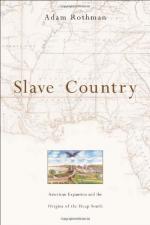|
This section contains 628 words (approx. 3 pages at 300 words per page) |

|
Anthropologist
Background
Scholars consider Lewis Henry Morgan, who was born in a well-to-do family in western New York, to be the father of American anthropology. Educated at Union College, Morgan studied ancient history, mathematics, and comparative political economy. He combined his studies with a romantic optimism in American democracy and institutions, beliefs that somewhat colored his nationalistic view of American westward expansion. Yet unlike many historians of his day, Morgan believed that a society's progression and decline depended less on key individuals than on its laws, customs, political culture, religion, and civil institutions. Heavily influenced by the Romantic movement, Morgan grew fascinated with Native American cultures. His work provided a theoretical framework for the burgeoning field of ethnology and even informed federal policies toward Indians.
Collaboration with Ely Parker.
Morgan's League of the Ho-de-no-saunee, or Iroquois (1851) remains one of the premiere anthropological studies, a...
|
This section contains 628 words (approx. 3 pages at 300 words per page) |

|




